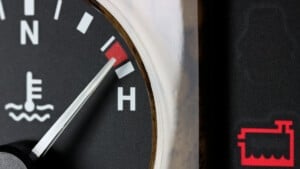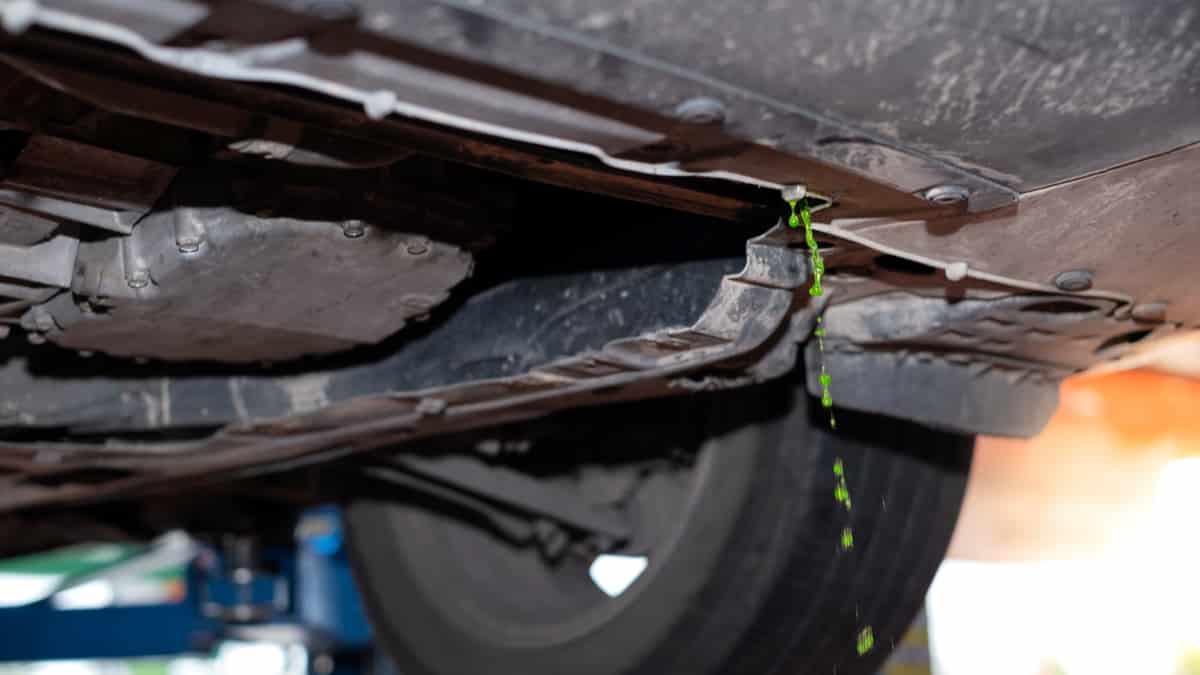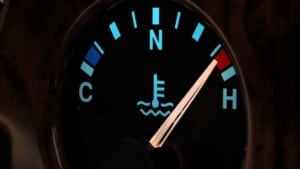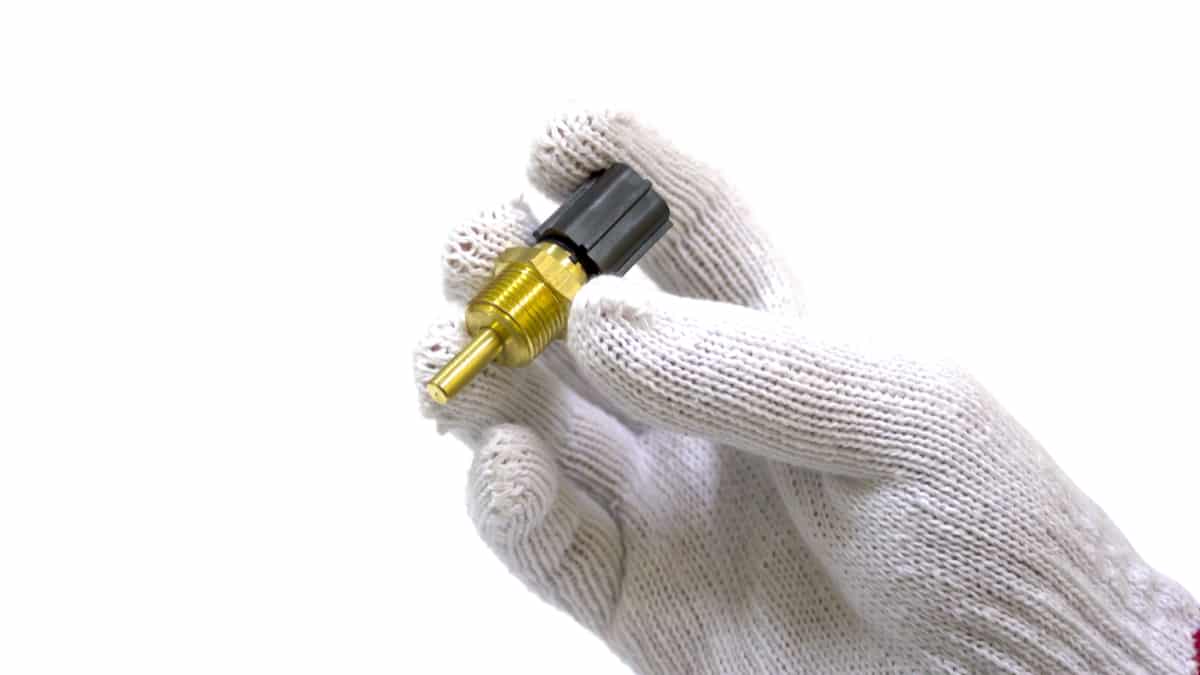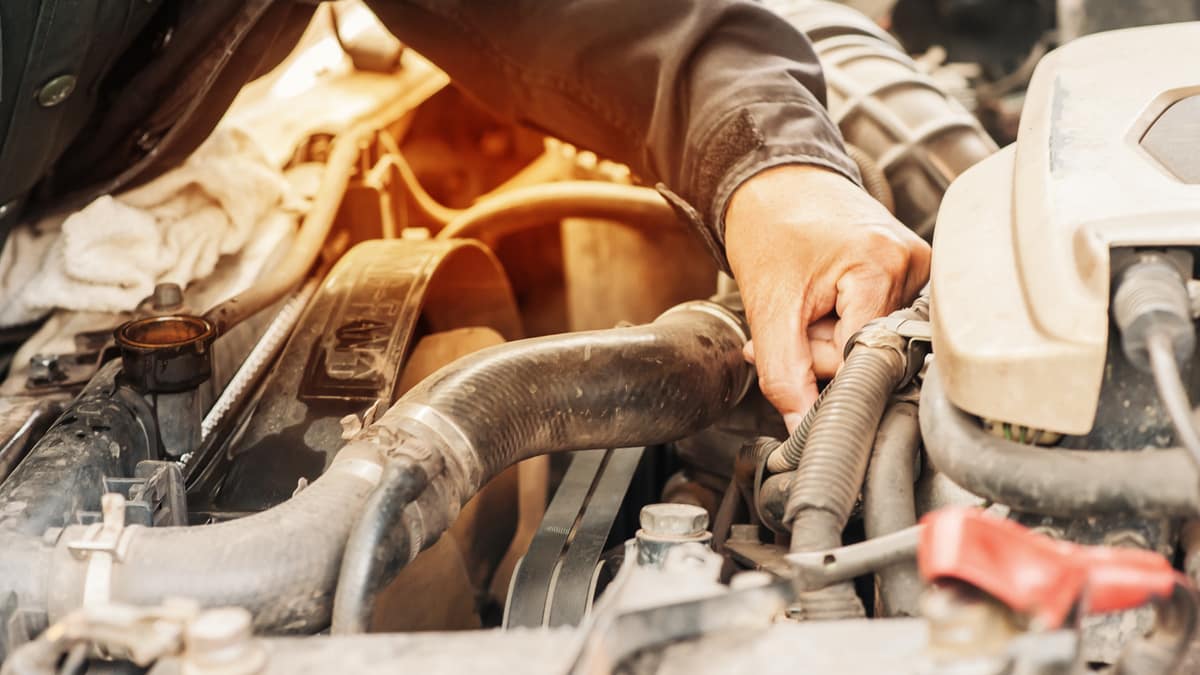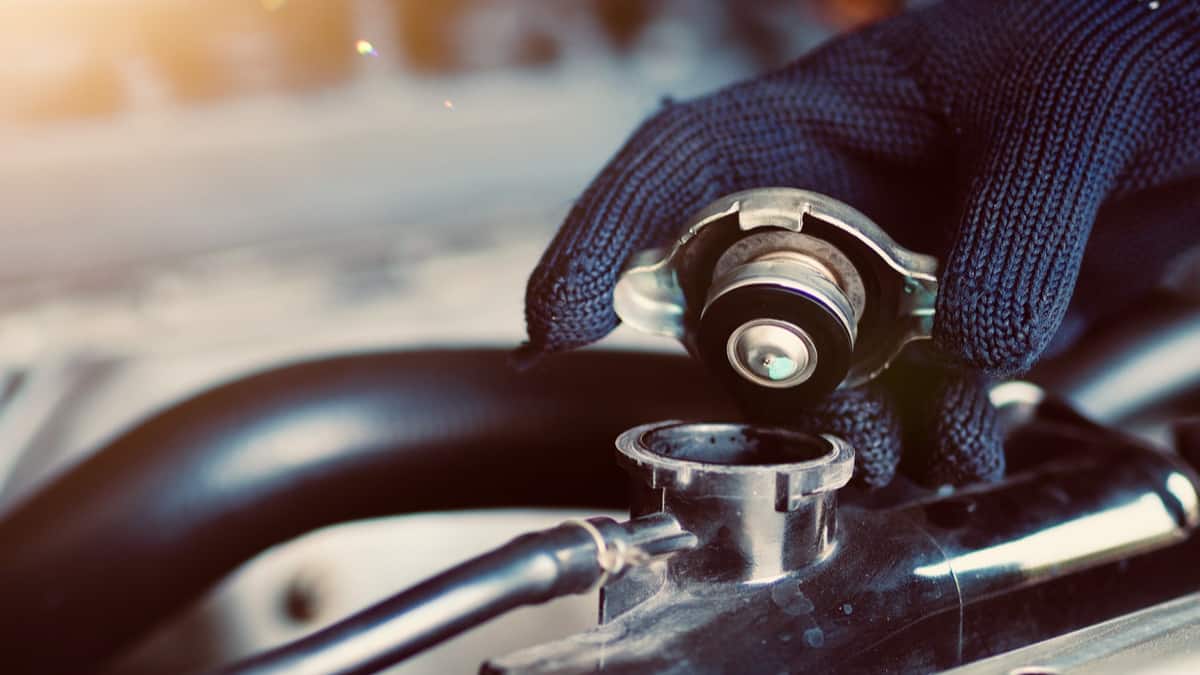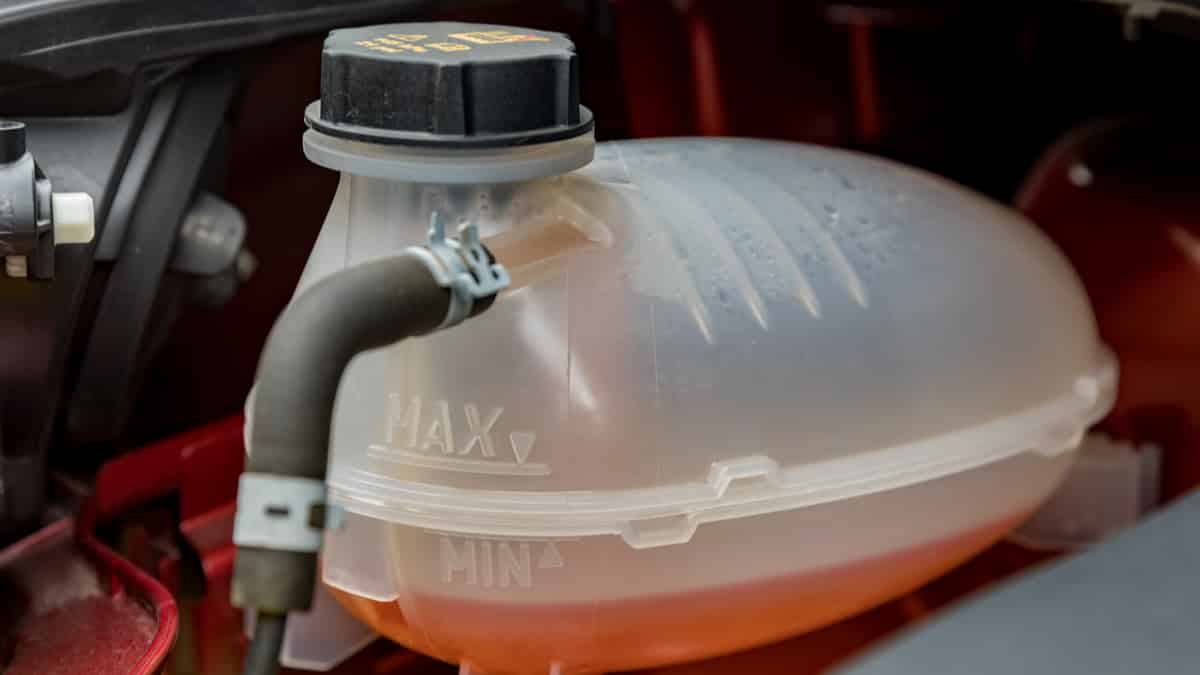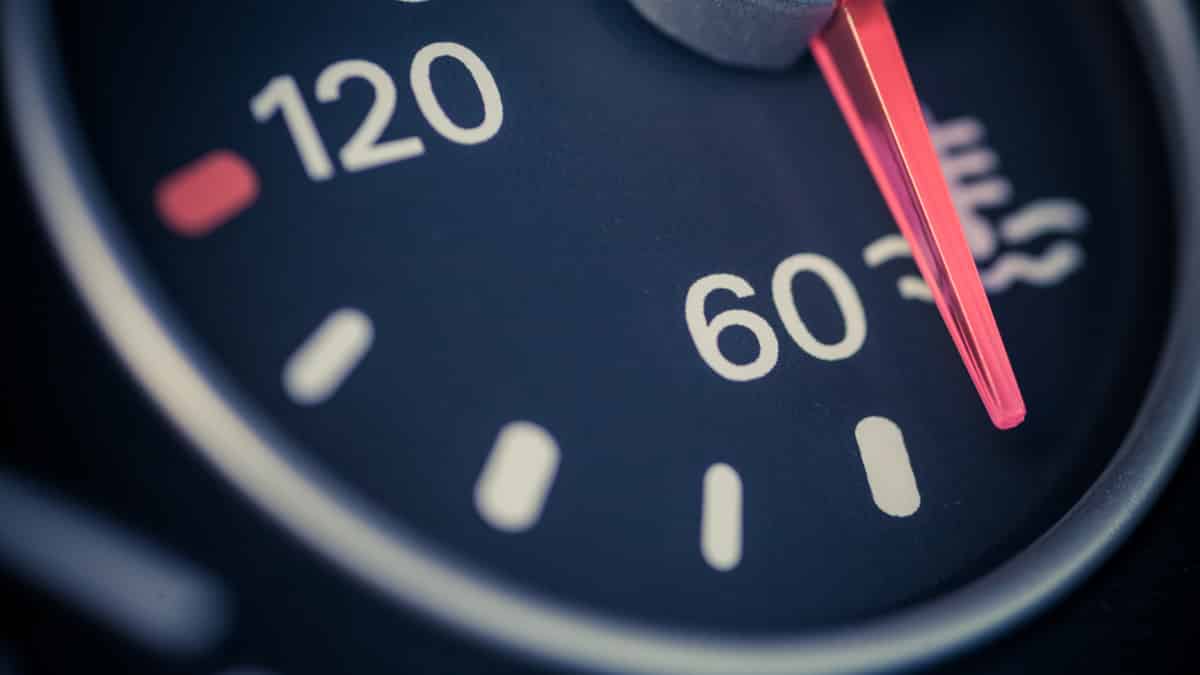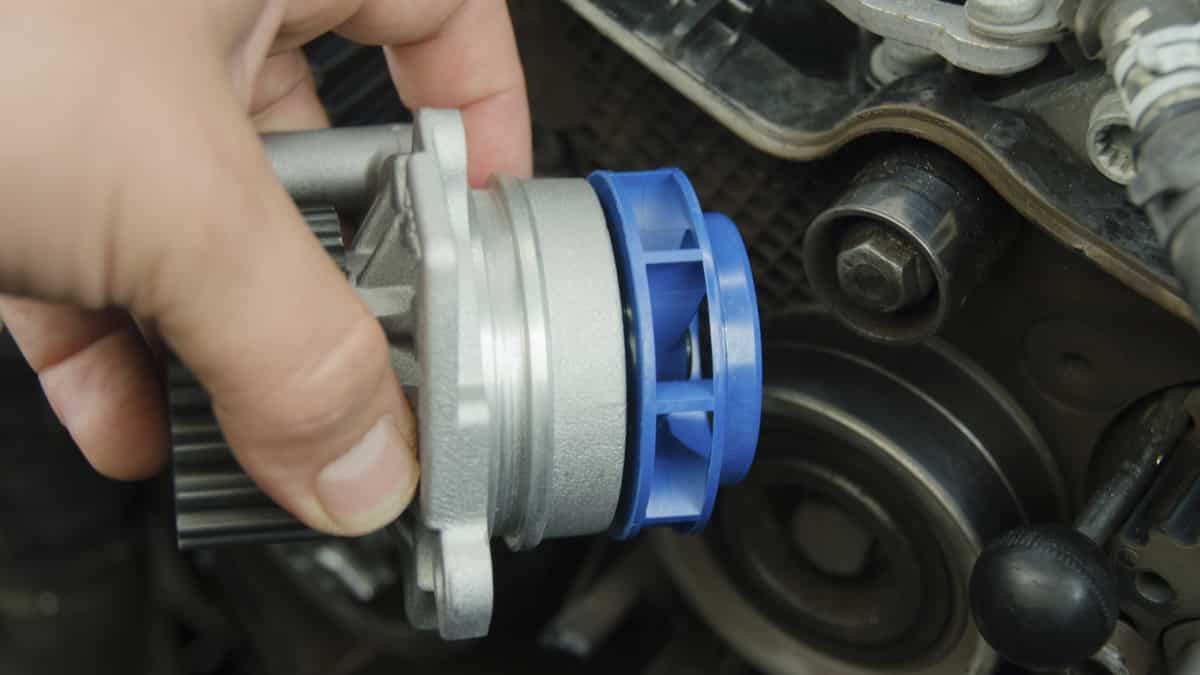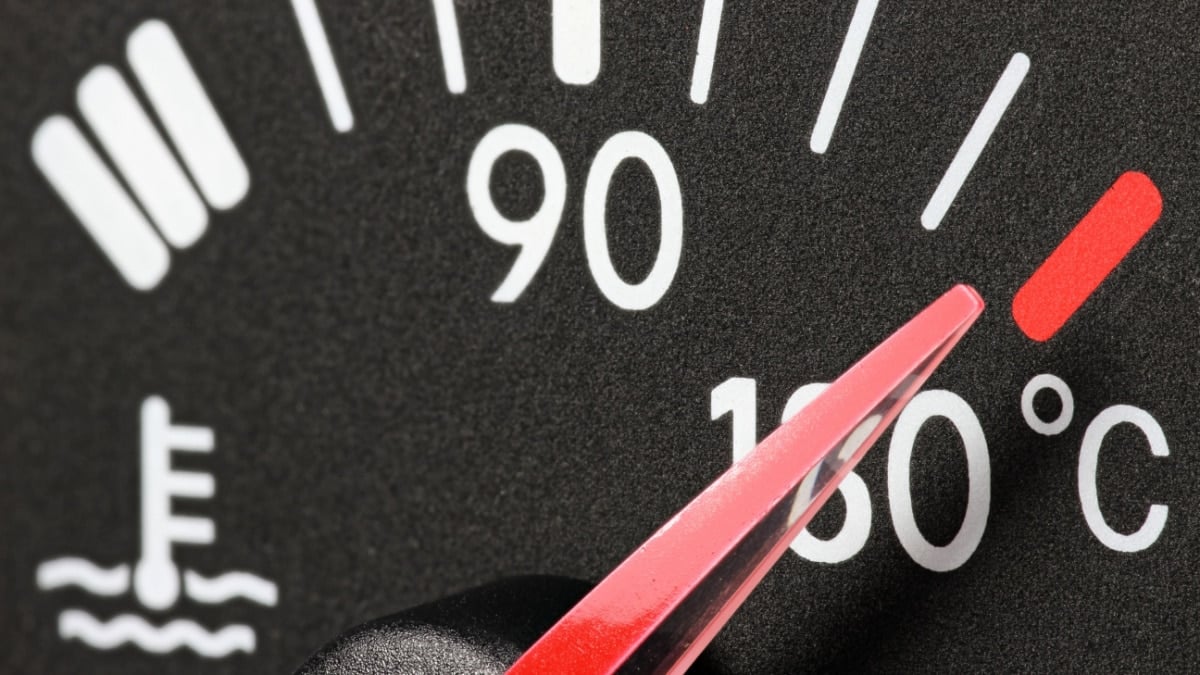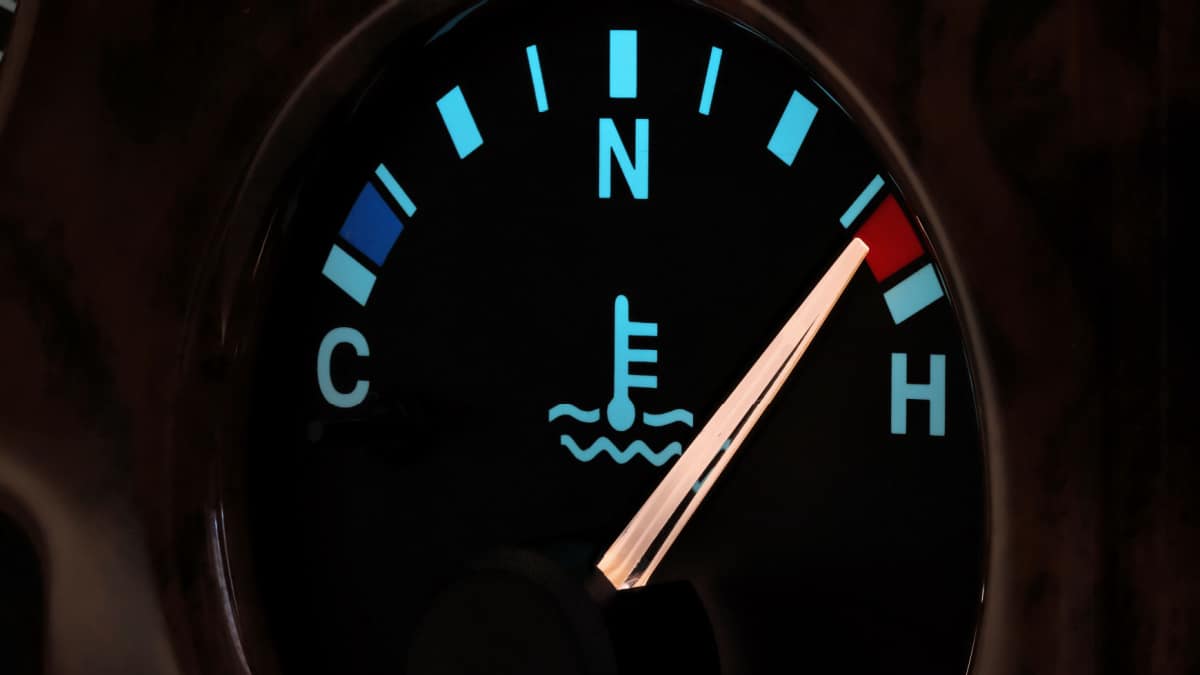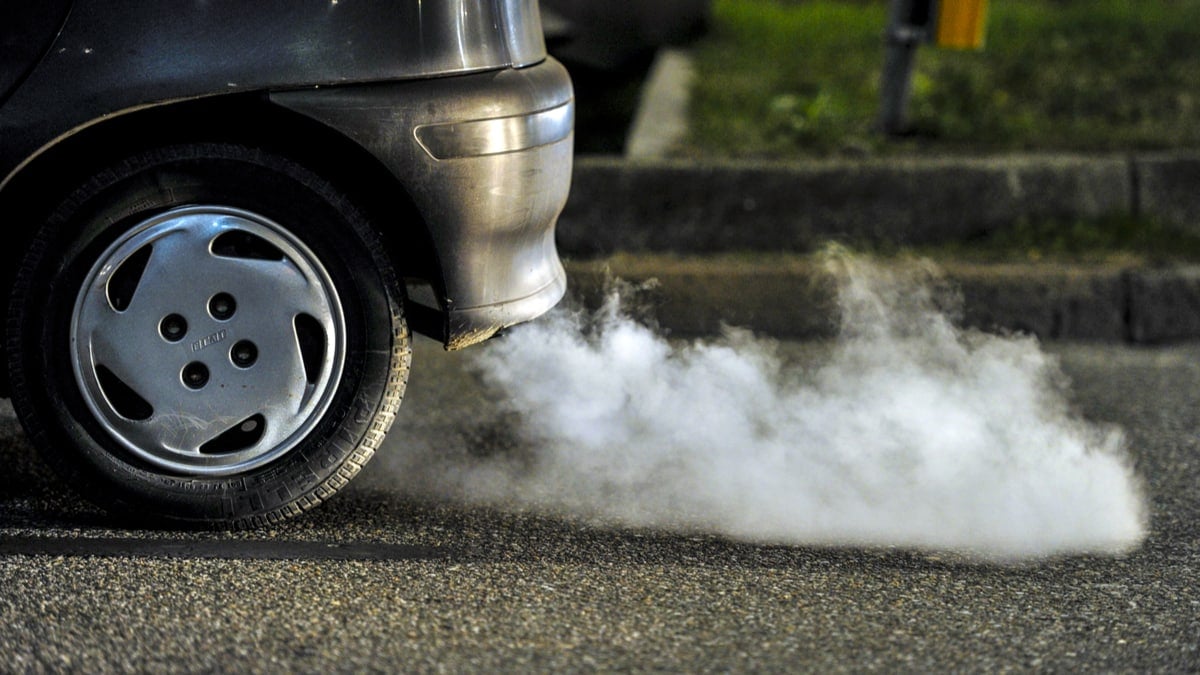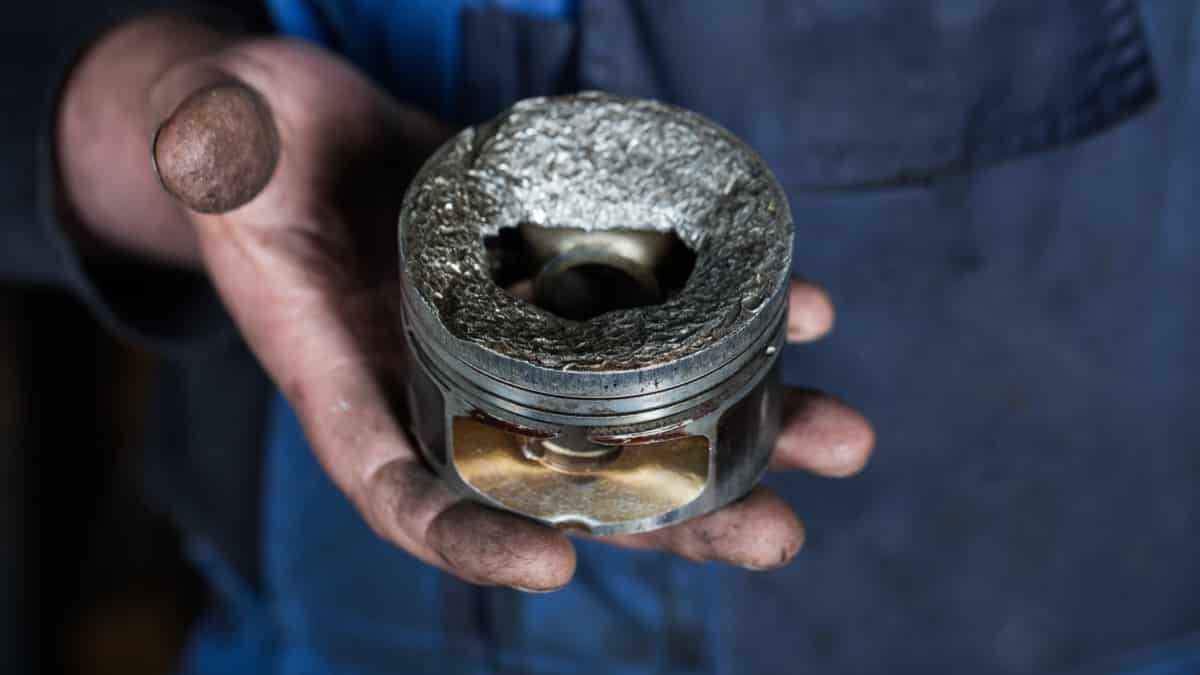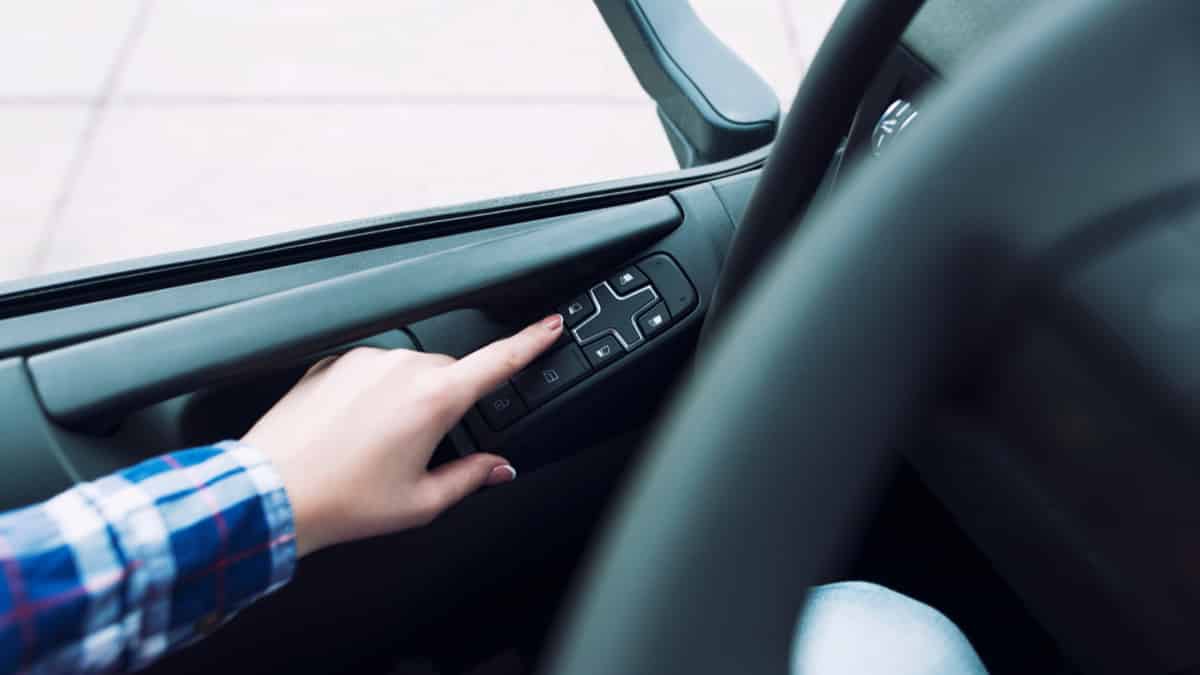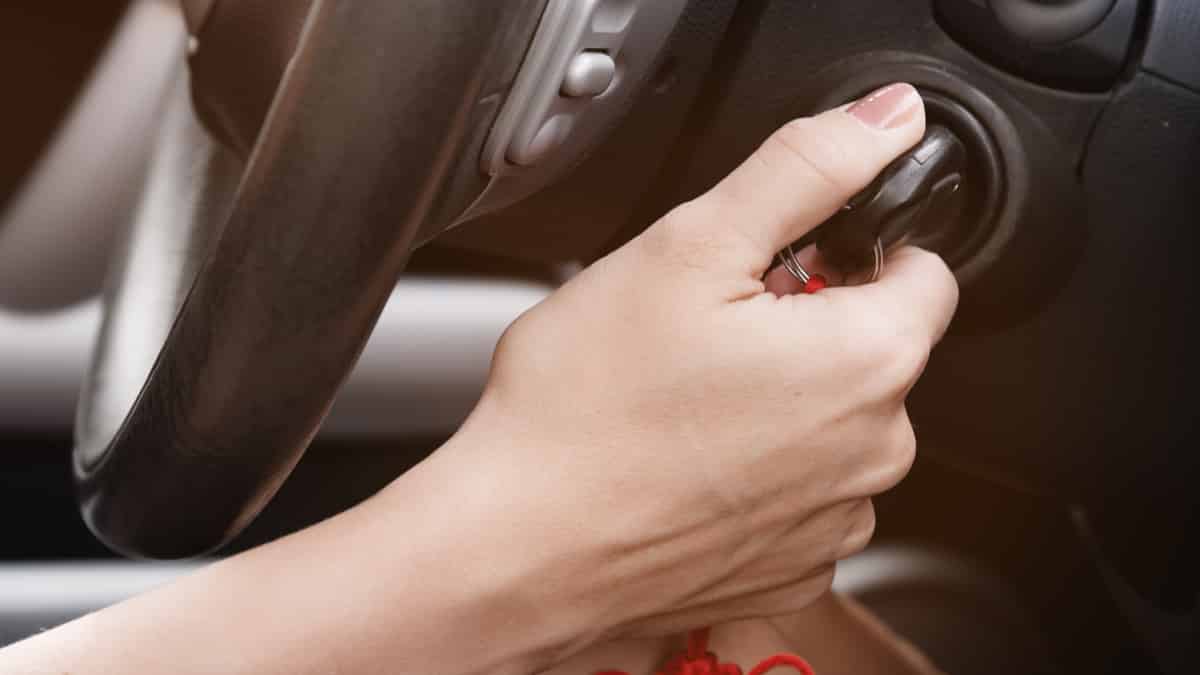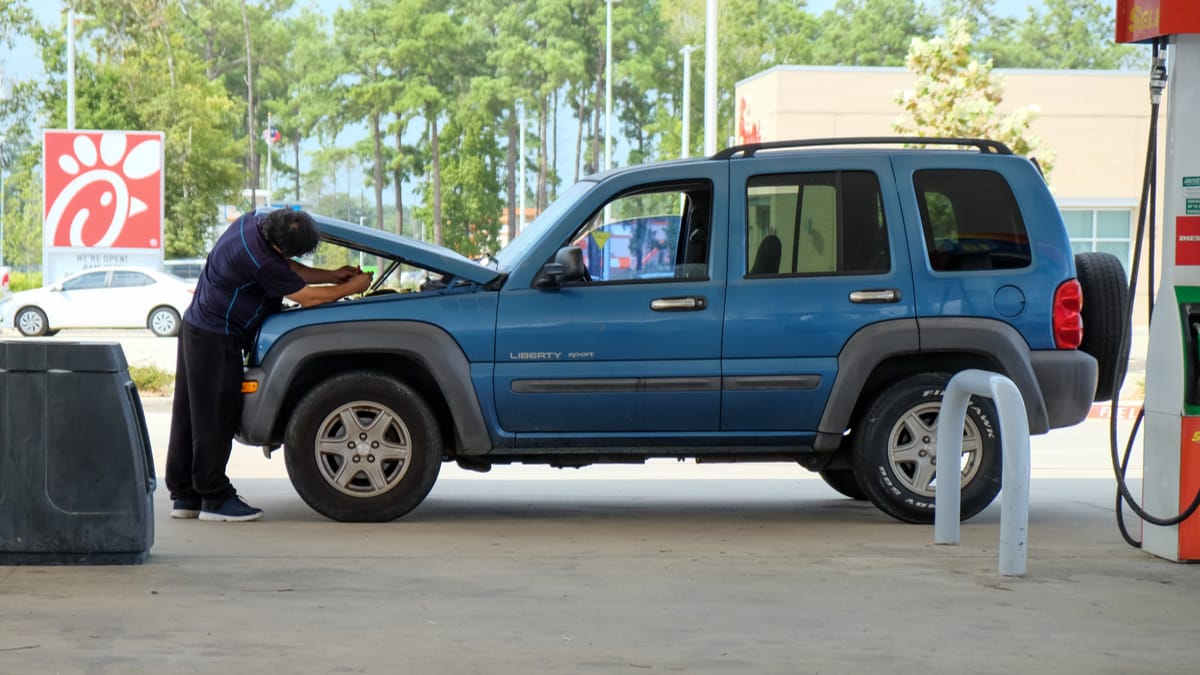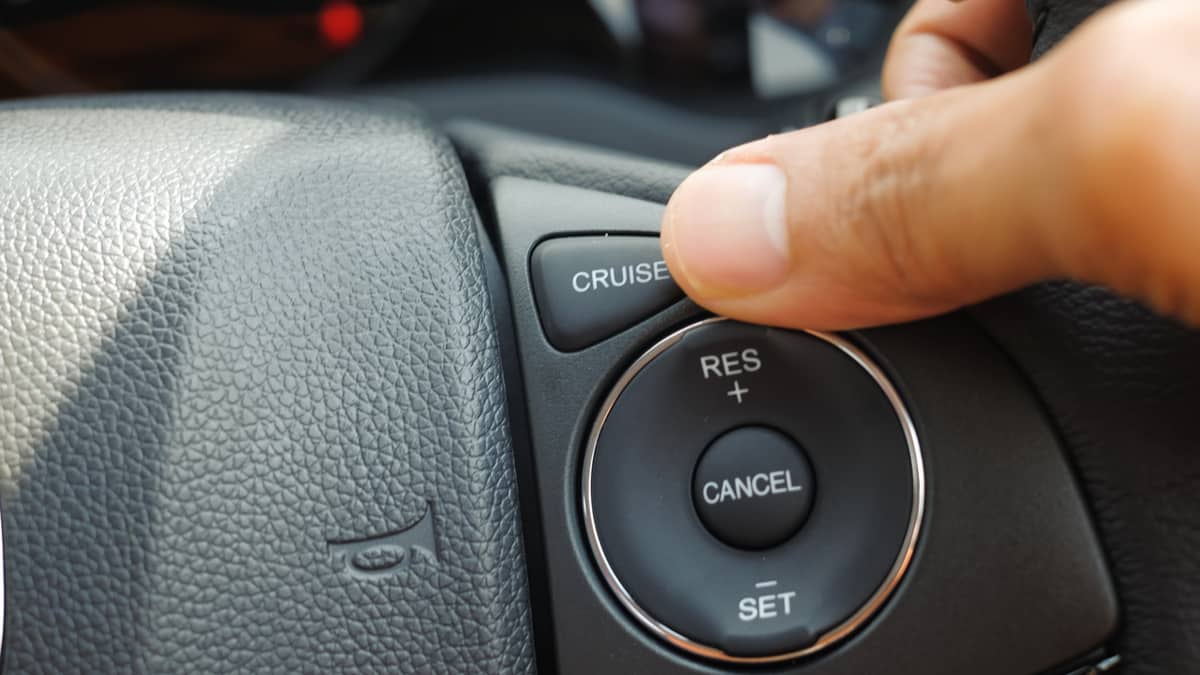While you can push off plenty of problems, an overheating car engine isn’t one of them. Driving with an engine that overheats is a great way to end up stranded on the side of the road, spending a ton of money on a tow truck.
That’s why it’s so important to get to the root of your overheating car engine before you hit the open road.
In this comprehensive guide, I’ll walk you through the nine most common causes of an overheating engine before walking you through how to troubleshoot your engine. By the end, you’ll know exactly what’s wrong with your vehicle and how to fix it! First, let’s take a look at the possible reasons for an overheating engine.
Causes of an Overheating Car Engine
The most common causes of an overheating car engine are low coolant level or a broken thermostat. If the overheating only happens during idle, it may be caused by a bad radiator fan. It can also be caused by a broken water pump or a blown head gasket.
Down below, you will find a more detailed list of the possible causes. I’ll take a dive into the nine most common below before walking you through how to troubleshoot your vehicle.
1. Low Coolant or No Coolant
The primary purpose of coolant is to cool down your engine. So, it’s no surprise that if your vehicle is low or out of coolant, your engine will overheat! Just keep in mind that your vehicle has a sealed cooling system, so if you’re constantly adding coolant, you need to figure out where it’s going.
2. Broken Thermostat
Your vehicle’s thermostat opens and closes as needed to keep your engine at the right temperature. If it’s stuck open or closed, your engine will overheat, which is a significant problem.
The thermostat is usually located in a plastic house somewhere on your engine block or head. Check your repair manual to find its location.
3. Broken Water Pump
Your vehicle’s water pump pushes the coolant throughout the engine. Without it, your coolant is sitting stagnant and can’t do its job.
Keep in mind that while your vehicle’s water pump can break, it’s one of the rarer problems, depending on the car model.
4. Broken Fan
If your vehicle only overheats while idling, you should double-check that the fan is working correctly. The fan pushes air over the radiator to keep it cool, which is especially important while your vehicle is idling.
RELATED: 7 Causes Why Your Radiator Fan Is Not Coming On
5. Clogged or Damaged Radiator
Your vehicle’s coolant flows through the radiator’s fins to cool down, and if those fins are clogged or blocked, you won’t get enough coolant flow through your engine to effectively cool it down.
Another problem is if debris blocks the front of your radiator. While this is less common, you should make sure that air can easily flow over your radiator while driving.
RELATED: Symptoms of a Bad Radiator
6. Coolant Leak
While I highlighted low coolant earlier, an internal coolant leak can have your engine overheating even after you stop the oil off. That’s because if your coolant is mixing with other things, like your oil, nothing is going to cool down as it should.
Any kind of coolant leak can lead to your engine overheating in short order.
RELATED: How to Fix a Coolant Leak
7. Air Pockets in Your Coolant
After a coolant flush, you need to make sure that you get all of the air pockets out of the cooling system. Air pockets will cause your entire system to jam up, and you won’t get any coolant flow.
The exact instructions to bleed your coolant system will vary by vehicle, so check out the maintenance manual for your specific vehicle to figure out the steps you need to follow. Air pockets in your coolant can also be caused by a blown head gasket which can also result in an overheating engine.
8. Low Coolant Pressure
There are a few different reasons that your coolant might not be building pressure. You might have a busted radiator cap, or you might have a leak or busted water pump. Either way, low coolant pressure is going to lead to an overheating engine.
9. Low Oil
This is a very rare issue, but it can absolutely happen! Oil has several properties, but one of the critical ones is cooling. Without enough oil, engine components will create a lot more friction, which heats everything.
If it gets too hot, your engine can overheat. If your engine is overheating, take a few extra seconds to check your oil level.
How To Fix an Overheating Car Engine
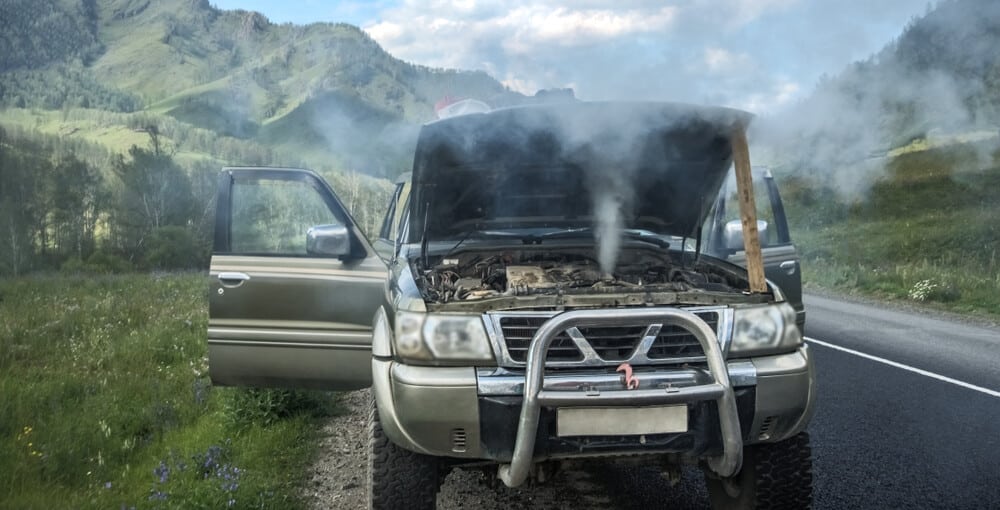
While there might be many problems that can lead to an overheating engine, you can keep it from getting overwhelming if you KISS the problem. It’s what every mechanic instructor teaches – keep it simple, stupid.
It’s the mechanic’s version of Occam’s Razor. Start with the simplest and most likely problems before you jump down the rabbit hole and start tearing things apart. When troubleshooting an overheating engine, the simplest thing to check is your fluid levels.
1. Check Fluid Levels
Check the oil and the coolant, and if either fluid is low, you’ve discovered a critical clue. While you can always top of the fluid and see if the problem goes away, keep in mind that both systems are sealed, so if fluids are disappearing, you have a problem you need to look into.
2. Pressurize the system
When the engine has completely cooled off, get a radiator cap tester and put it on top of your radiator. This nifty device will allow you to pressurize your entire system, which will check a few different problems for you. If you don’t own one, don’t worry, most part stores like AutoZone will let you rent one for free.
First, it will make it abundantly obvious if you have a leak – whether internal or external. Your system should hold pressure. If it doesn’t, you have a leak somewhere.
The next step is to check the thermostat. You can check this by checking the lower radiator hose’s temperature (or upper if that’s the output of the thermostat). If it is still cold when the car starts to overheat, you probably have an issue with the thermostat.
Remember that if you have a broken electric thermostat, you will usually have a check engine light – but that’s not always the case. If your thermostat checks out, take a look at your fan. Pop the hood and run your engine. At some point, the fan should kick on. If it doesn’t, you either have an electrical problem with the fan or a busted fan.
Finally, you need to make sure that you have coolant flow in your engine which requires some skills, and you should probably consult a mechanic to make a deeper diagnosis of your coolant system.
Categories: Coolant, Troubleshooting

